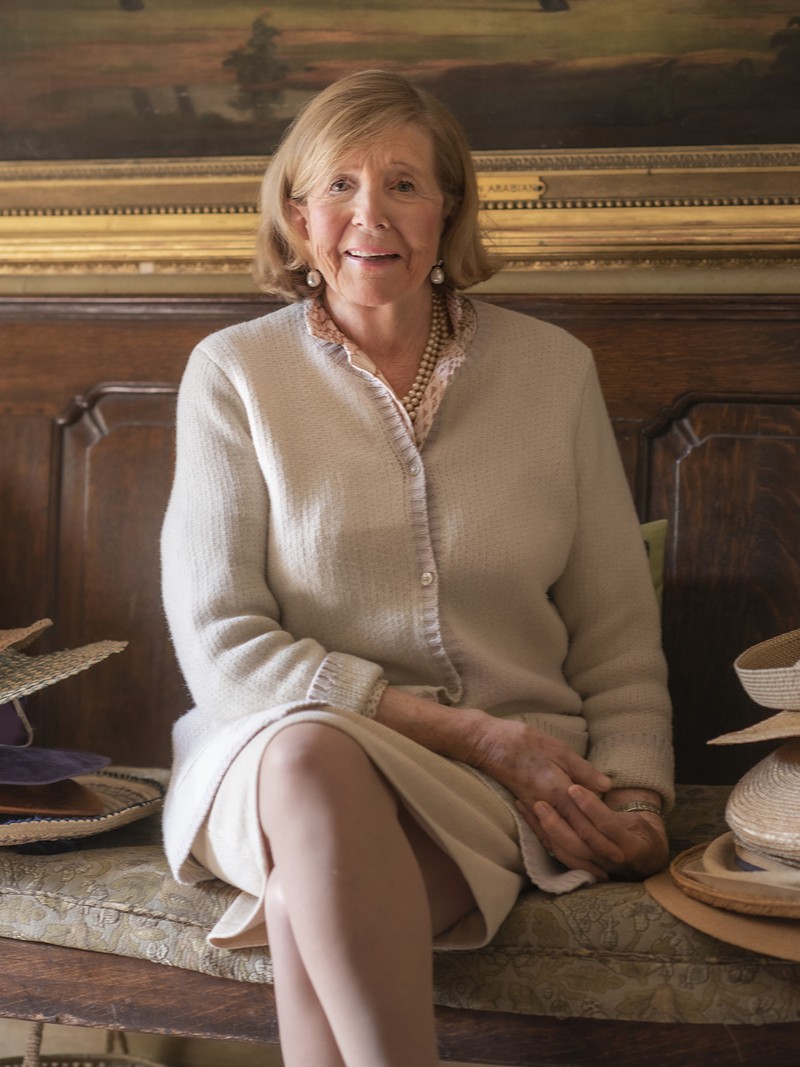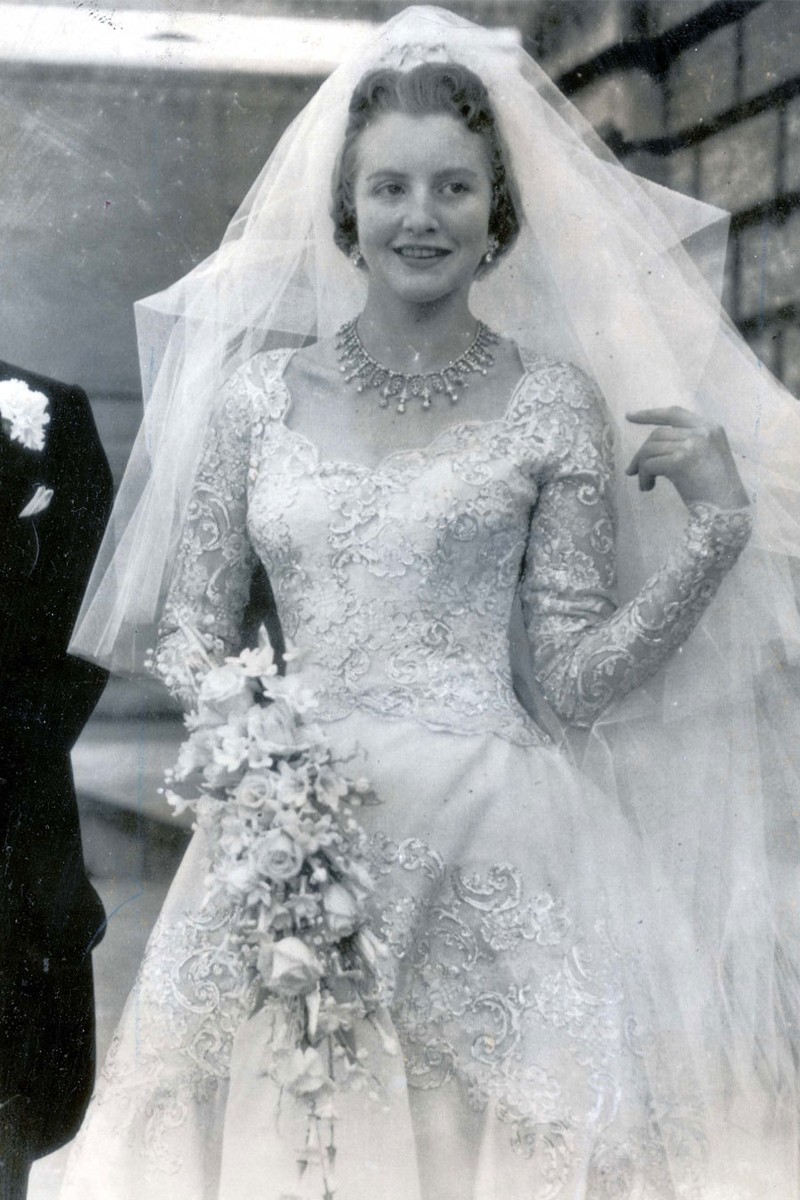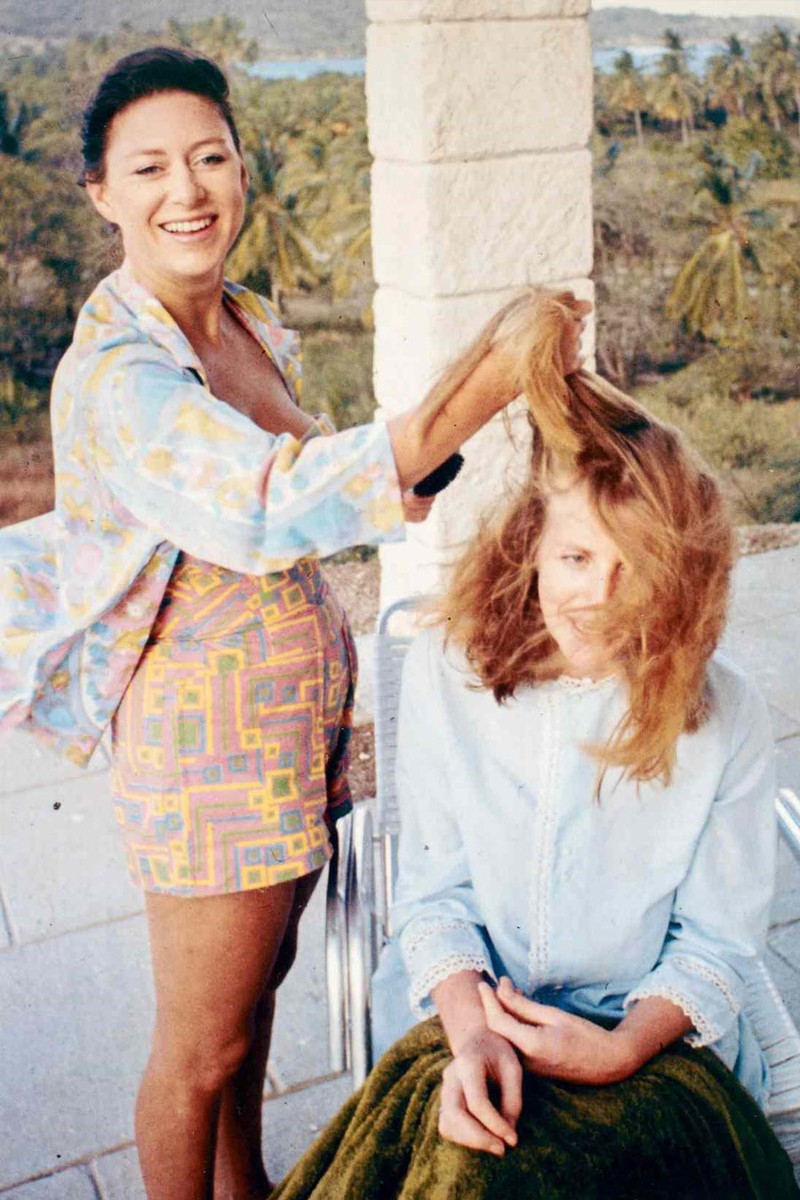
The Gold Edition Meets… Lady Anne Glenconner
My father was an equerry to George VI when he was Duke of York. My parents were also great friends of the Queen Mother, and my mother then became a lady-in-waiting to Queen Elizabeth II at the Coronation. I served as a maid of honour at the same event, so I was carrying the Queen’s train and my mother was walking behind.
I first met the royal family when I was about three. They used to come over to Holkham Hall because it was only about 12 miles away from Sandringham. So, I suppose I just always knew them. I instantly loved Princess Margaret. She was a very good friend, but she was also quite naughty. We were quite naughty together actually. We used to have picnics on the beach and swim a lot. People often ask me how my childhood with the royals shaped my outlook, but it was normal really. I knew they were special but growing up with them was great. Even down to the current king – whenever the then-Prince Charles had mumps or measles, he used to come to Holkham because he loved my mother. So, I’ve always known him.
It's always a special bond when you make friends as children. So, it was like that for me and Princess Margaret. We met when I was three and she was nearly five. She used to come to Holkham with me and we used to ride tricycles through the marble hall. We weren’t allowed to, of course, but we did anyway, and I remember the Queen and David Ogilvy, the Earl of Airlie, telling us off! Then the war came, and we didn't see them nearly as much – maybe once at Birkhall, the Queen Mother’s Scottish residence. Princess Margaret was born there, and I remember her telling us ghost stories and going to stand on a bridge at the end of the garden where the train came underneath it.
We ended up becoming friends again because she knew my husband Colin [Tennant, 3rd Baron Glenconner]. I became her lady-in-waiting and lived with her the whole year. I remember visiting Swaziland with her, which was extraordinary, as well as trips to Australia. Most of that is covered in my first book. It’s sometimes put to me that people associate privilege with a life of ease – maybe they do, but I certainly don’t. Even as a child, in the school holidays, we had this house to look after. Then, by the end of the war, the staff had all gone.
My sister and I used to clean – one of my jobs was to ‘air’ the Leonardo da Vinci portfolio. I sort of licked my finger and spun the pages – it was the most expensive book ever sold. Armand Hammer bought it first, and then somebody else – and it was covered in my DNA! My mother also started a pottery to make money and at one point it was the largest industry in north Norfolk. We employed 100 people. Keeping an estate like Holkham going is not easy. It's jolly hard work.
All my family have worked for the royal family. I had a great uncle Jack, who was lord-in-waiting to Queen Mary. And then one of my aunts, Mary Harvey, was lady-in-waiting to the Queen Mother. That's just been part of our family history.
Deciding to become an author at 87 was very simple. My husband died and left absolutely nothing to me or the children. I just happened to be having lunch with a friend, rabbiting away with my stories and a young publisher, Tom Perrin, asked whether I’d ever thought of compiling them into a book. I said, “No, absolutely not. I can't type. I only communicate on a landline or through letters.” He said, “Don't worry about that. What we need is your voice.” And it worked like a charm. A very nice girl came up and, in the morning, I sat alone and dictated everything. She wrote it up in the afternoon and we edited it in the evening. It’s now sold over a million copies and been translated into 21 languages. I got the Japanese version of the book yesterday. I’m amazed and really humbled.
What I didn't expect was all the letters I got – and continue to get. I spend at least half an hour a day answering them, there are hundreds. I wrote about losing my sons Charlie and Henry – one to heroin addiction, the other to AIDs – and people tell me they’ve been through similar things. Some of them even keep my book by their bed so that when they feel really sad, they can read it and not feel so alone. The gay community have also reached out after I wrote about my relationship with Henry. I also get a lot of sad letters about my second memoir and my thoughts on a rather difficult marriage. Queen Elizabeth really encouraged me to write the second one.
The inspiration for Picnic Papers came from Susannah Johnston, a cousin of my husband. We always adored picnics and, whenever we could, we took the children out everywhere. She was also a writer, so she suggested we write about it. The title is a pun on Dickens’ The Pickwick Papers. There are some lovely contributions in there, thumbnail sketches if you will – including how they’re related to me and full of funny stories… sitting in the rain, watching the food blow away, having ice-cream in the cold. It’s not really a cookery book – although the Queen did give me a recipe. I’m thrilled to see it taking off already. The best part is you can pick and choose really, and dip in and out of these anecdotes whenever you choose.
One of the picnics that I remember was up in Scotland. My husband Colin had a very eccentric uncle and when he came to visit, we said we were having a picnic the next day. He said to Colin, “I can’t possibly come darling because I hate the colour of the heather. It’s so vulgar.” So, Colin went off and bought hundreds of blue paper flowers and he placed them all on the hills, so that when we got up there for the picnic, there was a hill of sea blue. This uncle turned to Colin and said, “Oh, this is much better, dear boy.”
When I’m asked about writing about Princess Margaret, it’s only because I knew her. Lots of people didn’t but they continue to publish books about her. When Craig Brown’s Ma’am Darling came out, I really hated it. These people write about her without ever meeting her and she’d been such a good friend to me. When Henry contracted AIDs, he was like a leper and people wouldn’t go near him but Princess Margaret always came to stay. She’d bring her children, David and Sarah, with her and she’d hug him when she saw him. She went with me to a house that cared for young men dying of AIDs. Their families wouldn't have anything to do with them and their partners were probably dead. She wasn't touchy feely like Princess Diana, but she made them laugh. I just wanted people to know that side of her, and I think I succeeded. I know the late Queen really liked my book and I'm very pleased that I could do something for Princess Margaret because she did so much for me.
I always set aside time in the morning for writing. I’m nearly 93, so I get quite tired in the afternoon and evening. But I do carve out proper writing time because that's very important. If my books leave any kind of legacy, I hope that it’s a historical record of sorts. I'm the only person who was part of the Coronation and who has written about it. Others have written about the Coronation, but they were either sitting in the Abbey or they weren't actually part of it. I’m the only one left who was actually involved, so I’m told that chapter on the Coronation has been very useful. It’s even been used in schools and that sort of thing.
Attending the King’s recent Coronation was also a great honour. Afterwards, he asked me how it was, and I said, “Fantastic, sir.” In truth, it was different. The Queen’s Coronation had 8,000 people in the Abbey, whereas he only had 3,000. But it was wonderful and the result was marvellous. I was the only person who could tell you first-hand about both because I remember the last one so well.
The thing people seem to be interested in is how I live and how I speak. In terms of what I write next, therefore, I think I do have tips about how people should live – especially as they get older. I also have opinions on the young – I have six grandchildren and four great grandchildren. I put their mobiles away and we associate with each other. I make them look at me. We put on amateur theatre shows. We go on the beach. So often these days you see children – and grown-ups too, of course – not talking at all over the dinner table. They’re just texting. I'm a great one for communicating with people – looking at them, being interested in them. I also can't stand how much people complain about things – probably a product of growing up during the war. A lovely picnic in a beautiful place, with friends enjoying delicious things to eat is my idea of luxury. It’s perfection, actually.
‘Lady Glenconner's Picnic Papers’, published by Bedford Square Publishers, is available now. Buy it at Amazon.co.uk
DISCLAIMER: We endeavour to always credit the correct original source of every image we use. If you think a credit may be incorrect, please contact us at info@sheerluxe.com.


/https%3A%2F%2Fsw18.sheerluxe.com%2Fsites%2Fsheerluxe%2Ffiles%2Farticles%2F2024%2F12%2Fnew-lady-anne-glenconner-bought-image2.jpg?itok=oFfwtcal)


